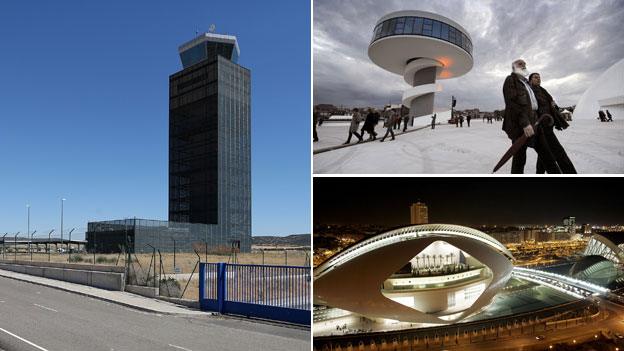Spain ruling Popular Party denies slush fund allegations
- Published
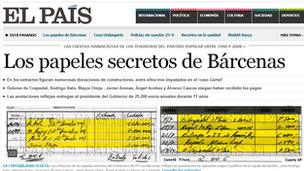
El Pais splashed photos of the alleged ledgers on its website on Thursday
Spain's ruling conservative Popular Party has denied allegations that Prime Minister Mariano Rajoy and others benefited from secret party accounts.
Photographs of ledgers showing business donations and payments to party figures were published by the centre-left daily El Pais on Thursday.
Allegedly kept by two former party treasurers, they cover nearly 20 years.
The party's secretary general has told reporters all payments to its leaders were clean and legal.
"We have only one set of books and they are clean," Maria Dolores de Cospedal told a news conference in Madrid. "We have absolutely nothing to hide."
Mr Rajoy and his party were elected by a landslide in November 2011 on a promise to reduce the high public deficit.
Spaniards have been asked to accept painful austerity measures as the government battles to avoid an international bailout. Meanwhile, the unemployment rate has reached a record 26%.
'Rajoy resign'
El Pais said Mr Rajoy had collected 25,200 euros (£22,000; $34,000) a year between 1997 and 2008.
It published photographs of what it said were ledgers kept by former treasurers Luis Barcenas and Alvaro Lapuerta between 1990 and 2009.
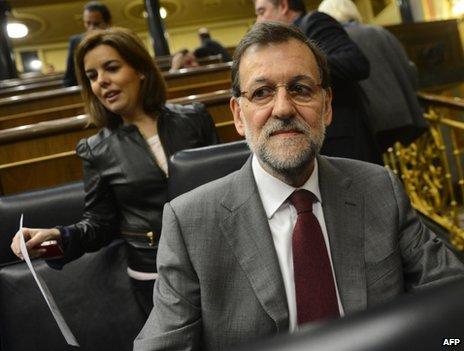
Mariano Rajoy first entered government in 1996
Money was allegedly paid by outside firms via Mr Barcenas, who stepped down in 2009 and is currently under investigation for money-laundering.
Investigators recently revealed that Mr Barcenas held a Swiss bank account which at one point held as much as 22m (£19m; $30m) euros.
Until 2007, Spanish political parties were allowed to receive anonymous donations. If the party leaders declared the income in tax statements, it may not be illegal, Reuters news agency notes.
However, the allegations raise ethical questions about the Popular Party's dealings during the period of Spain's building boom, when politicians granted large numbers of development contracts.
In a statement, the party denied making any "systematic payment to certain people of money other than their monthly wages".
"Given the information published today by El Pais, the Popular Party insists that its remuneration of top Popular Party officials and staff has always respected the law and its tax obligations," it said in a statement.
"The People's Party has no knowledge of the handwritten notes that were published and of their content, and it cannot be recognised, in any case, as this political party's books."
But one senior Popular Party figure, Jose Antonio Monago, who is the president of the Extremadura region, expressed concern.
"This does not help to calm down the difficult moments that we are going through, economically, politically and the climate on the street," he was quoted as saying by Reuters.
"This is a time for maximum transparency."
On Thursday morning, as news of the allegations spread, the hash tags lospapelesdebarcenas (the Barcenas papers) and RajoyDimision (Rajoy resign) were among the top terms trending among Spanish users of Twitter.
- Published30 January 2013
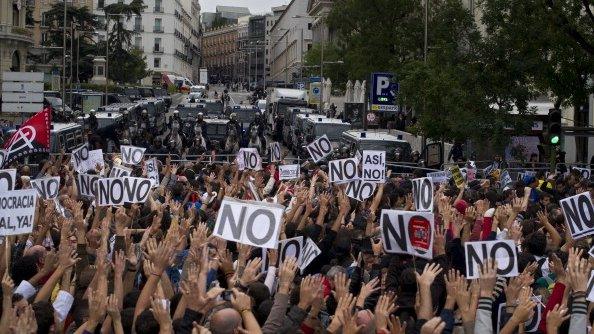
- Published24 January 2013
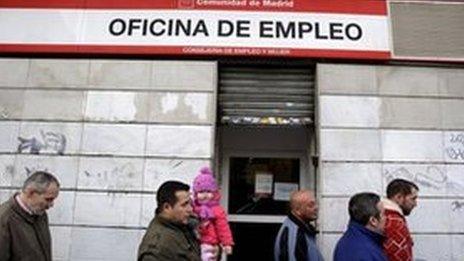
- Published1 June 2018
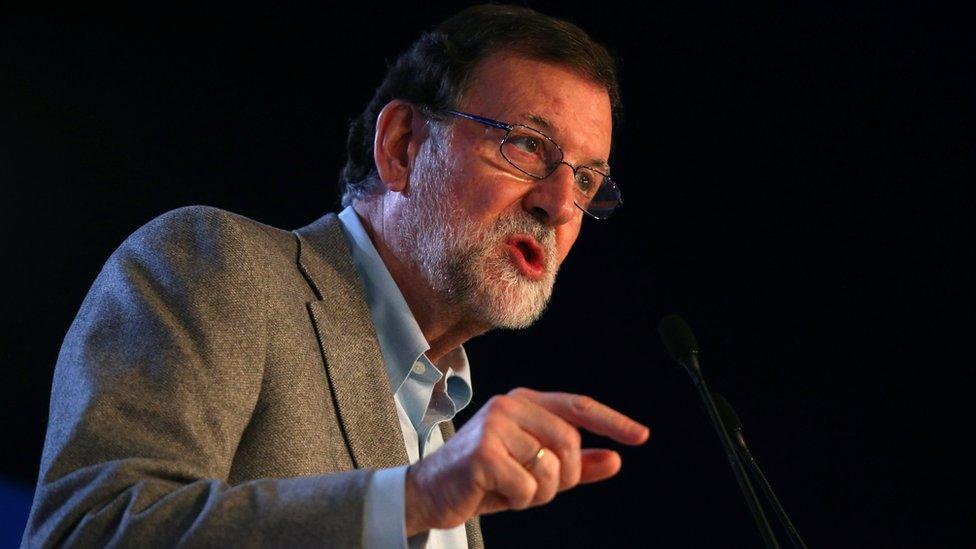
- Published25 January 2013
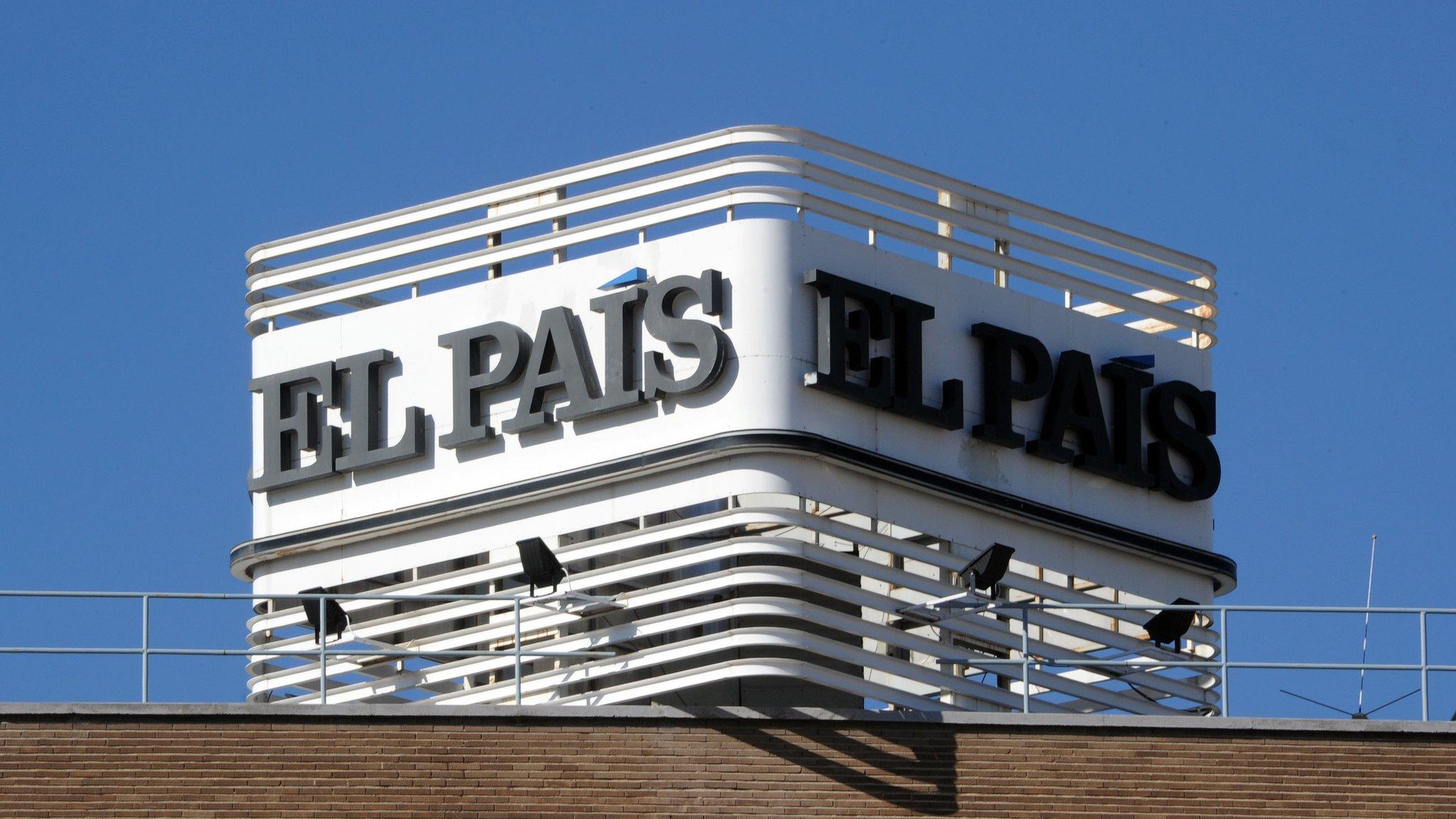
- Published26 July 2012
